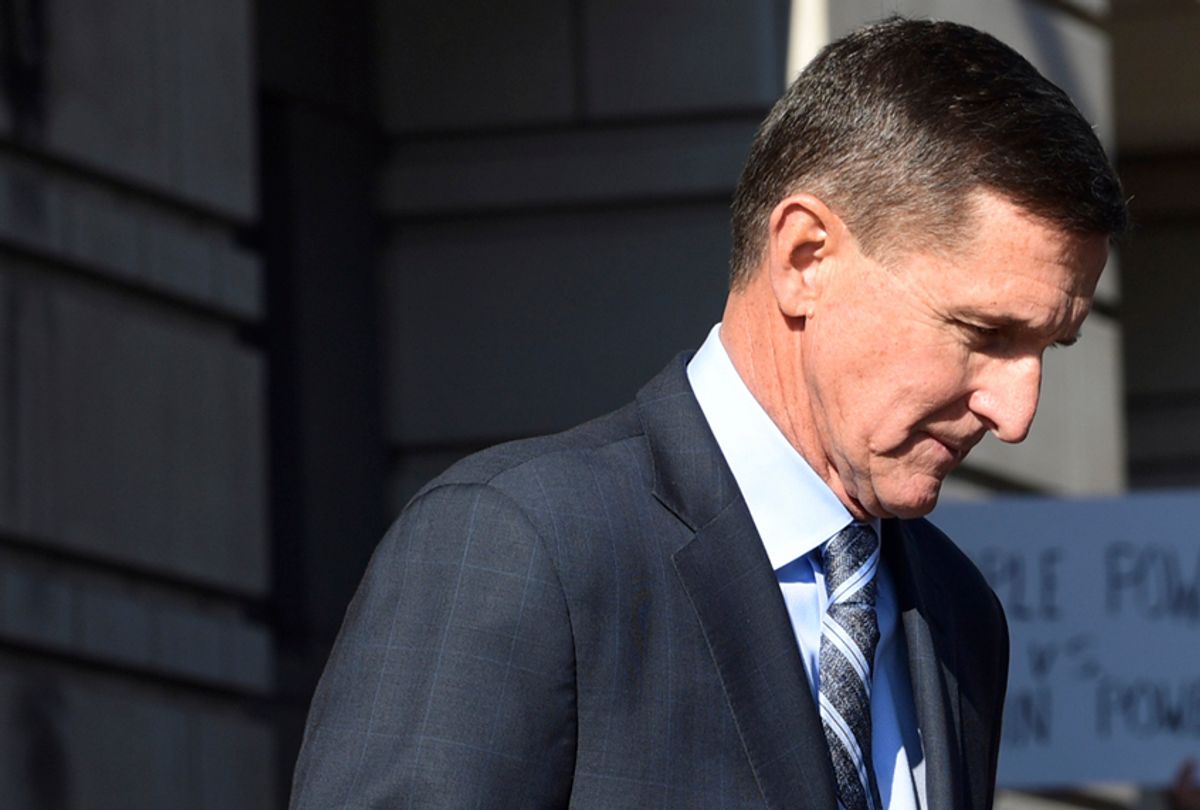When Michael Flynn, former national security advisor in the Trump Administration, agreed to cooperate in special counsel Robert Mueller’s Russia investigation, he admitted to lying to the FBI about his communications with Russian Ambassador Sergey Kislyak during the late 2016 lame duck session. But according to a new David Corn/Dan Friedman article for Mother Jones, Flynn was in touch with Kislyak not only after the 2016 presidential election, but during the election as well.
For the article, published December 13, Mother Jones’ reporters interviewed two Flynn associates who asked for anonymity—and both of them discussed their conversations with Flynn. One of them, according to Corn and Friedman, alleges that Flynn and Kislyak discussed “a grand bargain in which Moscow would cooperate with the Trump Administration to resolve the Syrian conflict and Washington would end or ease up on the sanctions imposed on Russia for its annexation of Crimea and military intervention in Ukraine.”
According to Corn and Friedman, the other Flynn associate alleges that Flynn and Kislyak discussed “Syria, Iran and other foreign policy matters that Russia and the United States could tackle together were Trump to be elected.”
A third anonymous source is mentioned in the Mother Jones article as well. That source, Corn and Friedman write, alleges that “Flynn told him he had been in contact with Kislyak about Syria—but without stating whether that was before or after Election Day.”
In their article, Corn and Friedman outline the reasons why these allegations from anonymous Flynn associates are important. The fact that Flynn spoke to the Russian ambassador during the late 2016 lame duck session is not new information; in December 2017, Flynn pled guilty to lying to the FBI about his post-election contact with Kislyak.
But Corn and Friedman stress that “had Flynn privately met or communicated with Kislyak during the summer or fall” in 2016, “it would mean Trump’s chief national security aide was secretly interacting with the representative of a foreign power as that government was mounting information and cyber warfare against the United States.”
Corn notes that if Flynn “had such conversations with the Russian ambassador, this could have bolstered the Kremlin’s preference for Trump over Hillary Clinton and provided Moscow with further incentive for intervening in the 2016 campaign to assist Trump—especially if there was any talk of a sanctions-for-Syria deal or other policy aims desired by (Russian President Vladimir) Putin.”
Mueller’s team has been investigating, among many other things, a hacker who went by “Guccifer 2.0” and stole the e-mails of the Democratic National Committee (DNC) and John Podesta, Hillary Clinton’s 2016 presidential campaign manager. Mueller believes that “Guccifer 2.0” is a representative of the Russian government—although Trump ally Roger Stone (who Mueller’s team has been keeping a close eye on) has maintained that Guccifer 2.0 is not Russian.


Shares